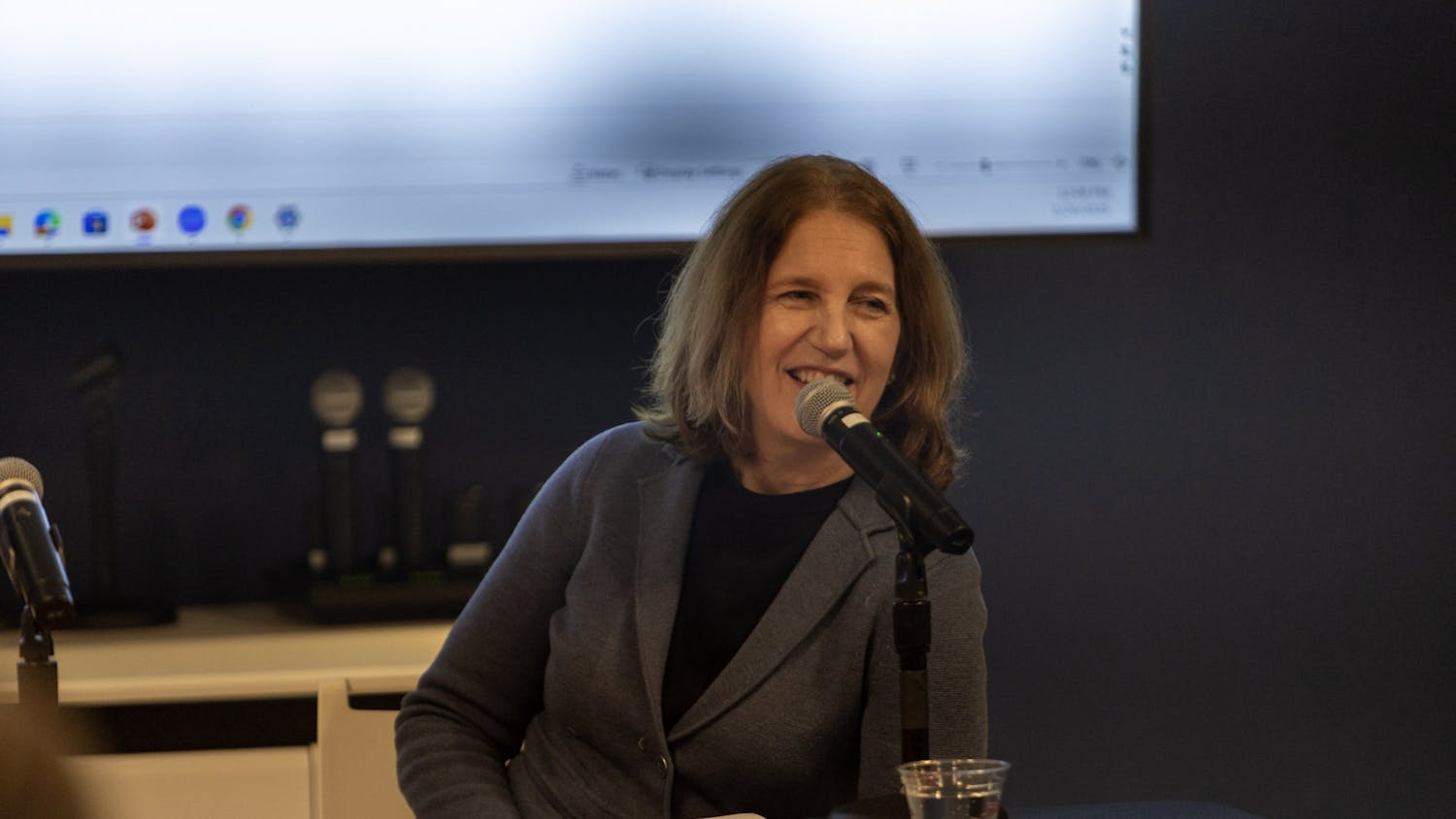Many of the militants in Iraq are local fighters whose sole aim is to get the American military out of Iraq, photojournalists Molly Bingham and Steve Connors said Friday.
Bingham was imprisoned for eight days in the Abu Gharib prison in Iraq before Saddam Hussein's regime fell. She later returned a year later with Conners, a filmmaker, and spent time outside the international Green Zone. Both came to AU to speak in the forum titled "The Nature of the Insurgency in Iraq," part of the School of International Service's International Development Student Forum.
"How many times do we have to tell you? Al-Qaida is not with us ... this is an Iraqi resistance," Connors said the fighters repeatedly told him.
Bingham said she decided to look into the Iraqi movement after a chance meeting with an Iraqi man in May 2003, who told her that he was in the resistance.
A few months later, Bingham returned with Connors to learn more about the resistance. Their investigation was restricted mostly to the Adamiya neighborhood of Baghdad, where they found 15 people actively involved in the fighting, Bingham said.
Almost all the fighters were in their 30s or 40s, and most were Iraqis; the foreigners there operated under Iraqi instructions and didn't function autonomously, according to Bingham.
These fighters were funded internally as well as from Syria and Saudi Arabia, and "obtaining weapons and explosives was not a challenge," Bingham said.
Bingham said the attacks evolved as the months passed. In August 2003, militants were approaching American tanks with rocket-propelled grenades. By the fall of 2003, they were using explosive devices on U.S. supply routes to prevent American military bases from getting food, water, fuel and other supplies, she said.
There was gradual consolidation among the various factions of resistance, and groups began to coordinate attacks and provide each other with weapons, Bingham said.
The resistance was fighting for self-determination, Bingham said. Members started off as nationalists fighting for "Iraq, their honor and family," but now they were fighting against what they saw as American interference to the kind of government, leaders, education system or health system they ought to have, Bingham said.
Muslim religious leaders, who stepped into the power vacuum at the end of the war, were goading these fighters on, reminding them to "fight for God and country," Connors said.
Dying for these reasons was seen as martyrdom and a way to boost one's social status, Connors said. "They believe that dying in this movement is a way to mediate for members of their family at the gates of heaven," Bingham added.
Bingham described how resistance fighters justified their attacks on the Iraqi National Guard.
"Cooperating [with Americans] is seen as collaboration, and collaboration is a death sentence," Bingham said.
Bingham said that she met only three people in 10 months there who opposed the fighting. Most people were passive participants. "If fighters needed to climb onto the roofs of these people's houses to escape the Americans, they let them," she said.
Connors said he was left speechless by one fighter who asked him, "If we invaded your country, wouldn't you resist?"
Bingham's experience in Iraq was not relegated to her 10 months covering this story. Because of complications with her visa, she spent eight days in Abu Gharib during the war, where she was in a solitary cell and treated with "physical respect," she said.
Sharmila Wickremasurya, a master's student in SIS, said she wasn't surprised by anything she heard. "You can't invade a country and expect a positive public reaction in that country," she said.
Meanwhile, Peter Gaff, also a master's student in SIS, said that some people might have misunderstood Bingham and Connors' experience.
"They were primarily in one Baghdad neighborhood. That might not necessarily reflect the rest of Iraq," he said.




